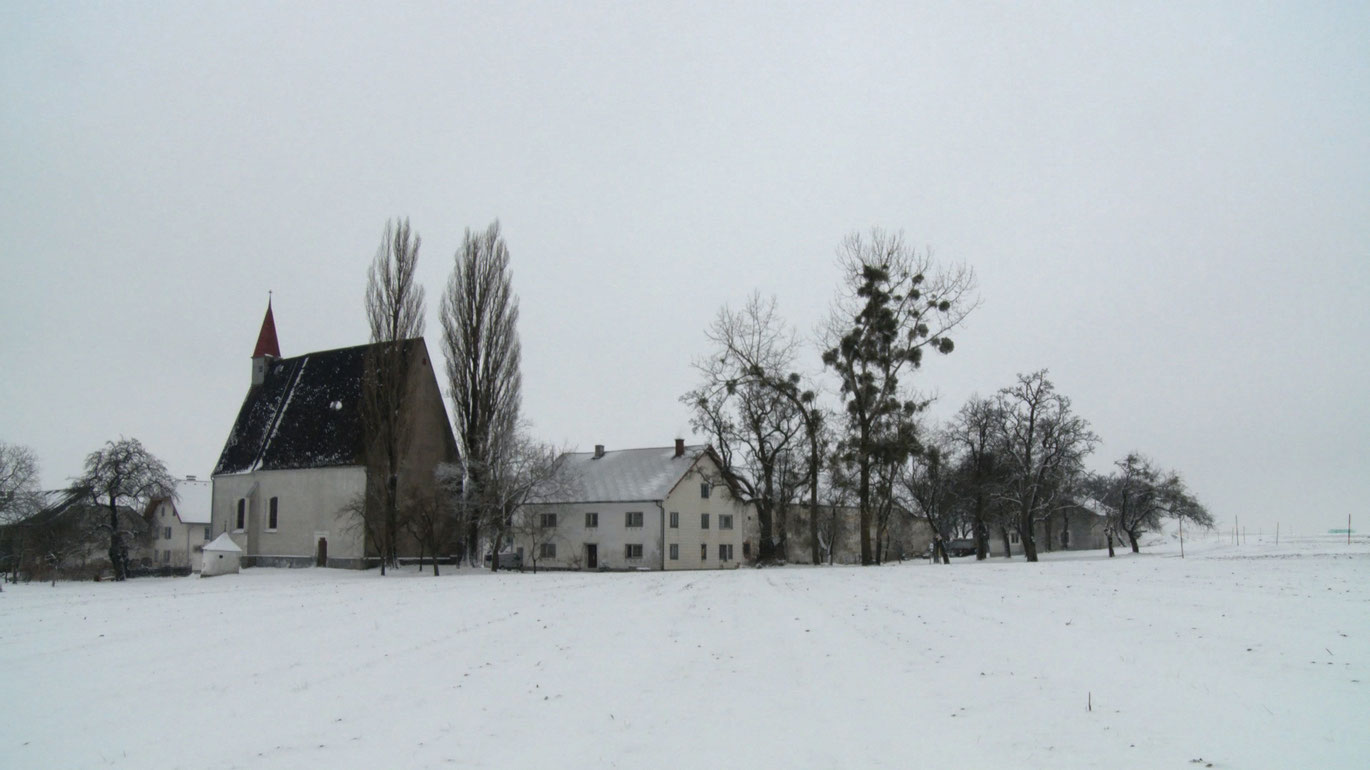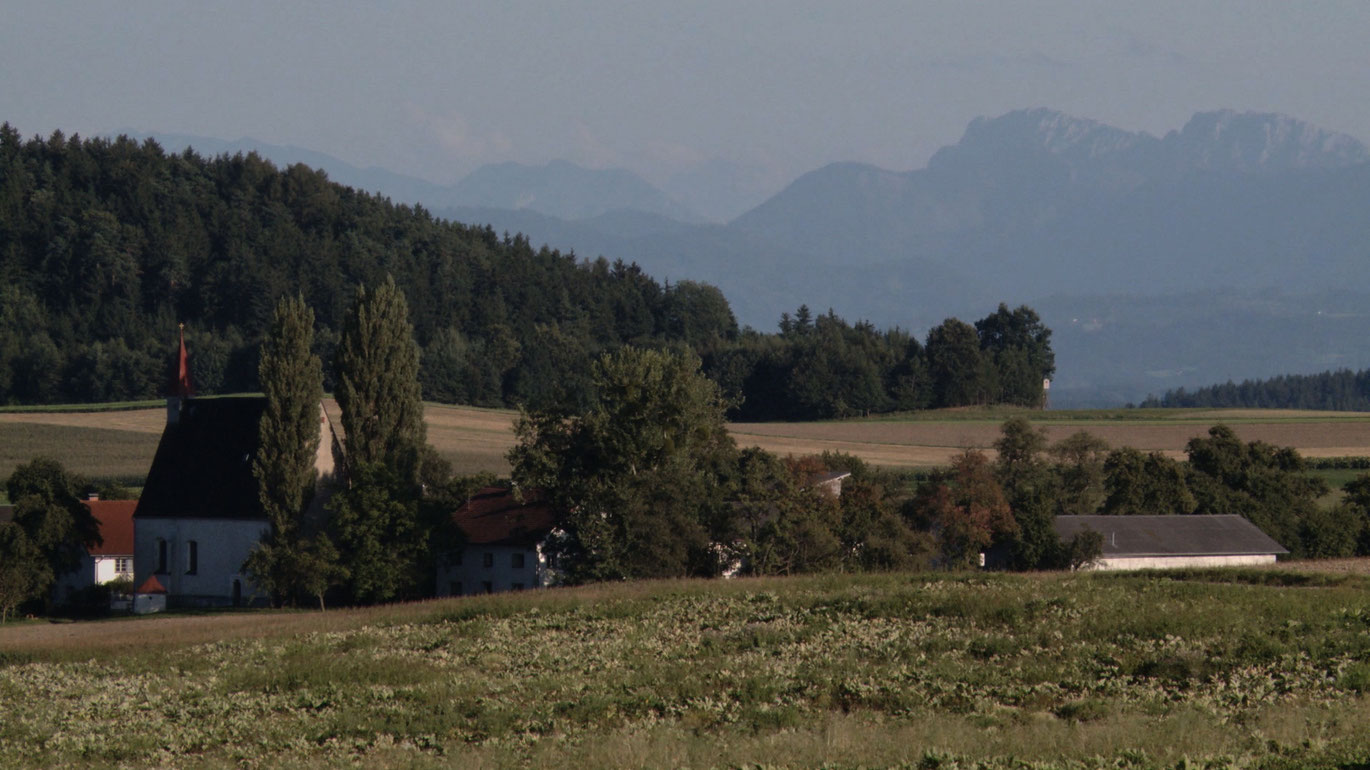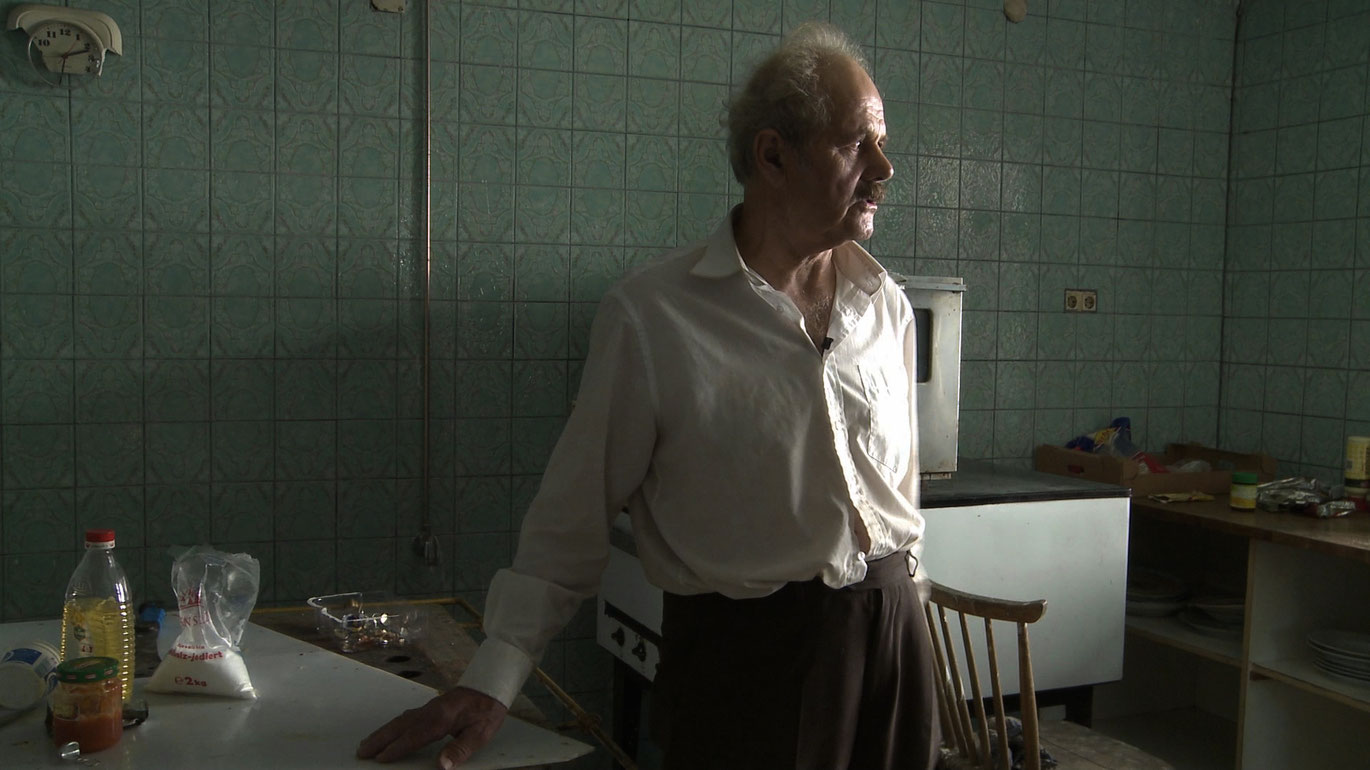Schusterfarm
The beginning shows a family line-up for the photographer: the elderly father and three grown sons, in the entrance of a somewhat dilapidated house that they inhabit together: A farmhouse in Upper Austria, located next to the village church, surrounded by fields and forests. Over the idyllic landscape images, a voice from the off is heard reading the protocol of a trial: the Weinberger family farm and inn have long been highly indebted, an extremely precarious financial situation for the family business. And a heavy burden for the sons’ futures. The potential for conflict in this jumbled situation, questions of guilt, and accusations remain latent. The four-man household functions. The pigs get fed, the grain is stored in the silo, and bread baked. The men do not talk a lot with one another. A more familiar discourse is produced first in the making of the film. The filmmaker, granddaughter of the somewhat eccentric head of the family, involved in events, and visible from time to time in front of the camera, discreetly brings the involved parties to talk. At the same time, from up close she maintains a certain distance by lending her voice to the judiciary report that serves as commentary. The absence of the deceased mother and wife is at the center of the family system. This empty space, emphasized by a long shot of a portrait photo, as well as a sense of loss and mourning, encompass the entire film. The crucifix and pictures of saints, the corner bench in the kitchen, where the family just recently all sat together, suddenly become still lifes; the rustic cupboard and large oven become relicts from a time already past. Without wanting to be sentimental, the family film develops to become a documentary of a dying way of life. Where to put the family photo from the beginning remains unclear.
(Birgit Kohler)
The location of this film is a beautiful and sleepy farmstead in Upper Austria. The farmstead represents a crossroads which ties the stories of four men together who live here: an innkeeper and his sons. A discussion is taking place about the debt incurred by the head of the family and the implications of a doomed heritage for each member of the family - of my family.
(Victoria Kaser)
Schusterhof
2012
Austria
79 min



